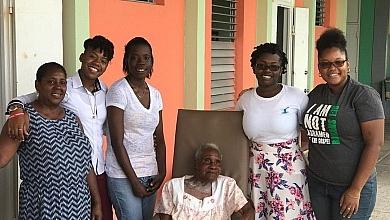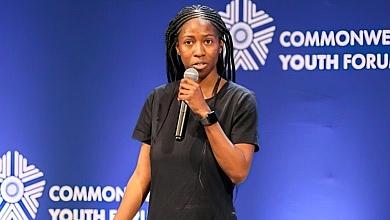Is it a coincidence that I came up with the topic of this article on my grandmother’s birthday? I don’t think so. Thinking of her and the conversations we’ve had allowed me to think about Dementia from a different point of view; a different perspective. By removing the science, the statistics, the definition of a big work, what is it that we get you to ask? A human being. Just like you; just like me, and we all get scared sometimes. Perhaps we even forget that they get scared too. They may be older than we are right now, but they are humans regardless and they are subjected to the same emotions and feelings that we are. The pain, the concern, and of course, the fear. All of this and possibly even more because they’re experiencing something that we could only just imagine until the shoe gets on the other foot.
Think about this, then think about that time you saw an old acquaintance while walking through town and he remembered everything about you; your name, the fun you both had at that camp back in high school- even scents, the smell of the coffee he would brew every morning at 9 am ahead of a long day at the office during that internship you did when you were 18. You remember all this but, you just can’t put your finger on remembering his name. How comfortable would that situation be for you? Even so, I bet there was a time you had to take this huge test that you studied hours for but for the life of you, you just couldn’t remember the answers to any of the questions. How frustrating would any of those situations be?
However, while memory loss is not the only aspect of dementia, it is the most common symptom in all the variations of this disease and might even be the difference between a diagnosis of Multiple Sclerosis (MS) or Parkinson’s Dementia.
“Memory loss from a psychological or geriatric perspective is not given that much thought as oppose to those derived from physiological conditions or trauma”- Personal POV.
But let’s face it. No matter the cause, losing our memory is a scary thing, and believe it or not it’s on the minds of our parents and grandparents alike.
“Maylo I am afraid.” Words from my grandmother while we discussed the possibility of her brother having this dementia. She reminded me how her mother was completely dependent on the care of the family.
I was very young during my late great-grandmother’s days of living with dementia and I didn’t know much of the disease or life in general for that matter but, I remembered one thing; the fact that I had no idea who the “real” mama was. Apart from the random singing (which I duly enjoyed) and the cleaning coffee grains that were never there, I had no idea who she was as a “functioning” member of my family. As a result, I was forced to rely on stories that my mother and grandmother would tell me just for me to be able to see her beyond the “lunatic” I thought her to be at that time. I believe my grandmother saw it too. And I believe that it was in those moments she was crippled by the thought that she and her brother could be reduced to that state.
According to The World Health Organization, Dementia is a syndrome in which there is a “deterioration in cognitive function beyond the usual consequence of biological aging.” As of now, there is no known cure for dementia nonetheless, this doesn’t stop organizations such as the Dominica Dementia Foundation who seeks to educate the public; especially the youth, that “knowledge is power”. If anything, it strengthens our mandate as an advocacy body. Educating yourself on dementia will allow you to make healthier choices that may prevent you from ever having to live with the disease. By participating in dementia-related discussions, you are better able to educate your friends and give them the power to make healthy life choices that may assist them in never becoming demented. I believe the saying was prevention is better than cure?
This year, Alzheimer’s Awareness Month is being observed under the theme “Know Dementia, Know Alzheimer’s” and is one that looks at making informed decisions. Knowing your possibility of developing dementia based on family history as well as knowing practices that could curb the development of dementia or simply just understanding the disease enough to know that people living with dementia deserve to be treated humanely.
Today’s memory; tomorrow’s tragedy. Let’s all do our part to fight Dementia together.
This article is copyright © 2021 DOM767








